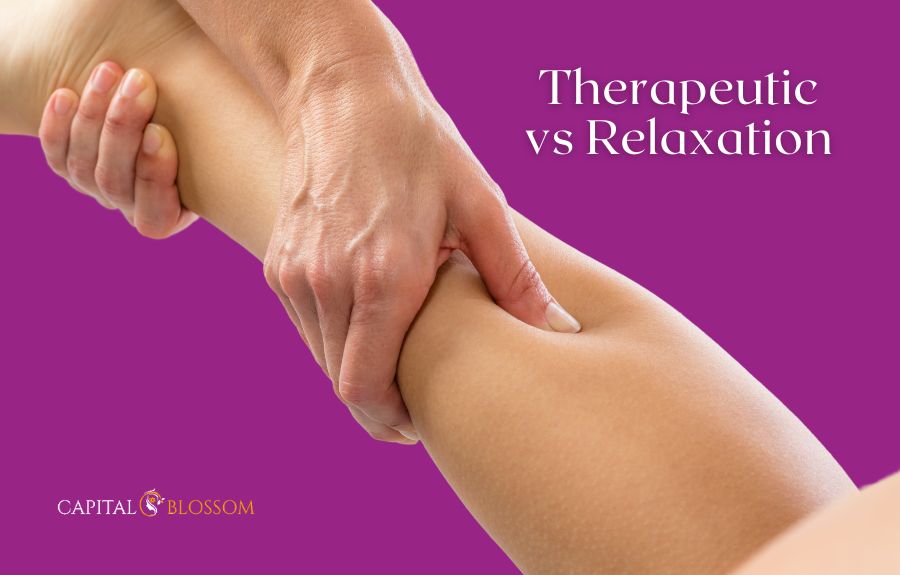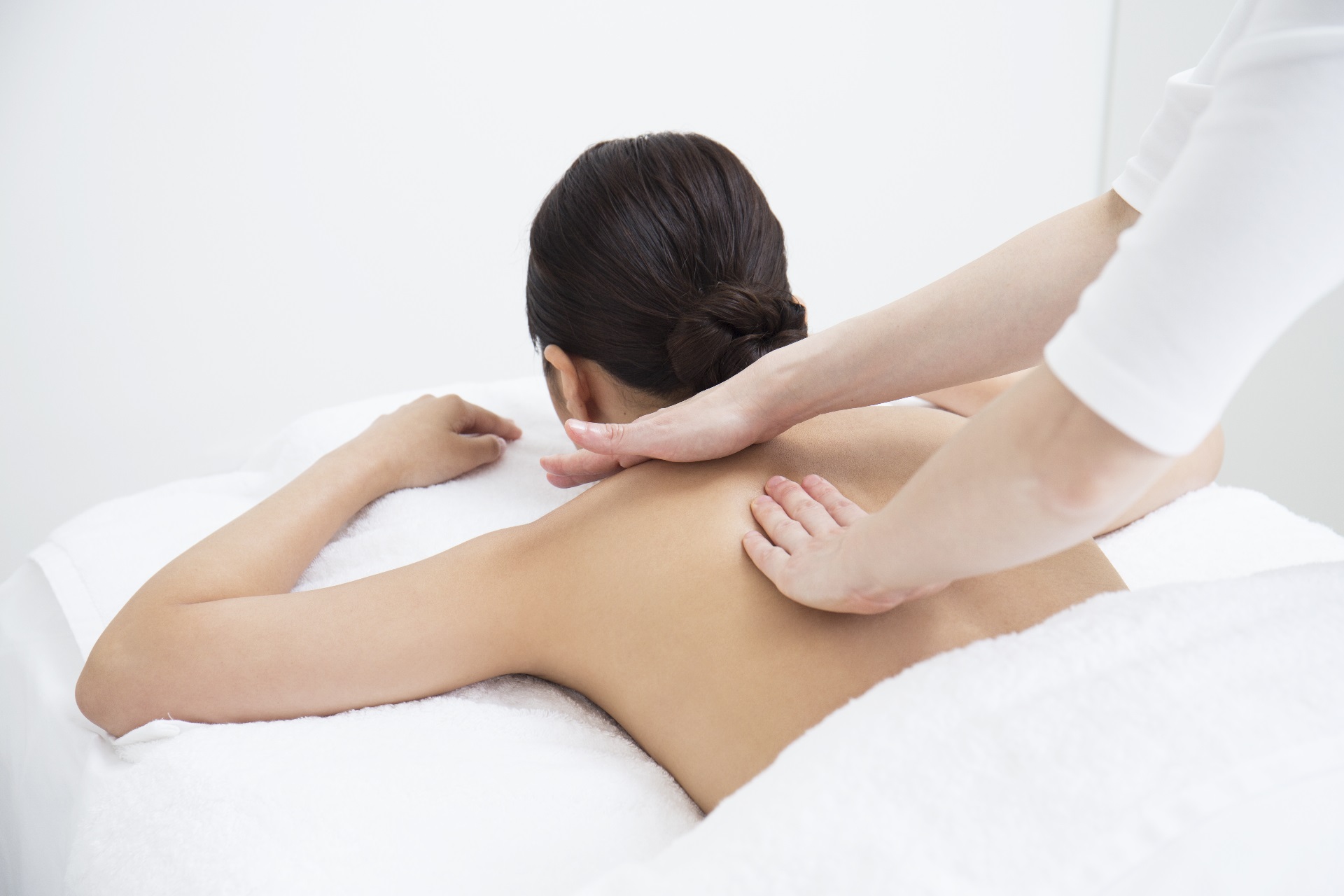
Which is More Beneficial? Therapeutic vs Relaxation Massage
When considering a massage, you might wonder which type is more beneficial: therapeutic or relaxation.
Each has its own distinct advantages, and the best choice depends on what you need and want to achieve.
In this blog, we’ll discover the differences between therapeutic and relaxation massages, know their benefits, and help you decide which one might be the right fit for you.
Understanding Therapeutic Massage
Therapeutic massage focuses on treating specific physical issues, such as muscle pain, injury recovery, and chronic conditions.
This type of massage aims to alleviate pain, improve mobility, and enhance overall physical well-being.
Techniques used in therapeutic massage include deep tissue massage, trigger point therapy, and myofascial release.
:max_bytes(150000):strip_icc()/african-man-receiving-facial-massage-74009013-bd55db3f623a49b89c815a8de379eff7.jpg)
Benefits of Therapeutic Massage
- Pain Relief – Therapeutic massage can help reduce chronic pain and muscle tension. It’s often recommended for individuals suffering from conditions like fibromyalgia, arthritis, or sports injuries.
- Improved Mobility – Through working on deep muscle layers, therapeutic massage can improve flexibility and range of motion. This is particularly beneficial for athletes and those recovering from injuries.
- Enhanced Circulation – The techniques used in therapeutic massage promote better blood flow, which can help in the healing process and reduce inflammation.
- Stress Reduction – While the primary focus is physical healing, therapeutic massage can also reduce stress and anxiety by promoting relaxation.
Who Should Consider Therapeutic Massage?
Therapeutic massage is ideal for individuals with specific physical issues, such as chronic pain, muscle injuries, or post-surgery recovery needs.
It’s also beneficial for athletes looking to enhance performance and prevent injuries.
Understanding Relaxation Massage
Relaxation massage, often referred to as Swedish massage, is designed to promote overall relaxation and reduce stress.
This type of massage uses long, flowing strokes, kneading, and circular movements on superficial layers of muscle. The primary goal is to help you unwind and rejuvenate.

Benefits of Relaxation Massage
- Stress Relief – Relaxation massage is highly effective in reducing stress and promoting a sense of well-being. It can lower cortisol levels, which helps in managing anxiety and depression.
- Improved Sleep – When you calm the the nervous system, relaxation massage can lead to better sleep quality. It’s a great option for those struggling with insomnia.
- Enhanced Mood – The gentle techniques used in relaxation massage stimulate the release of endorphins, the body’s natural feel-good hormones.
- Boosted Immune System – Regular relaxation massages can strengthen the immune system by reducing stress and promoting overall health.
Who Should Consider Relaxation Massage?
Relaxation massage is perfect for individuals looking to unwind and reduce stress. It’s also suitable for those seeking to improve their mental well-being and enhance overall relaxation.
If you don’t have specific physical issues but want to feel more relaxed and rejuvenated, relaxation massage is a great choice.
Comparing Therapeutic vs Relaxation Massage
- Purpose and Focus – The primary difference between therapeutic and relaxation massage lies in their purpose and focus. Therapeutic massage is aimed at treating specific physical issues and promoting healing, while relaxation massage focuses on reducing stress and enhancing overall relaxation.
- Techniques Used – Therapeutic massage involves deeper, more targeted techniques like deep tissue massage and trigger point therapy. Relaxation massage uses gentler, more superficial techniques such as long strokes, kneading, and circular movements.
- Intensity and Pressure – Therapeutic massage tends to be more intense, as it targets deeper muscle layers to address physical issues. Relaxation massage, on the other hand, is gentler and uses lighter pressure to promote relaxation and reduce stress.
- Session Goals – The goals of a therapeutic massage session are to alleviate pain, improve mobility, and support physical recovery. The goals of a relaxation massage session are to reduce stress, promote relaxation, and enhance overall well-being.
Choosing the Right Massage for You
- Assess Your Needs – To determine whether therapeutic or relaxation massage is more beneficial for you, start by assessing your needs. Are you experiencing chronic pain, muscle tension, or recovering from an injury? If so, therapeutic massage might be the better option. If your primary goal is to reduce stress and relax, then a relaxation massage could be more suitable.
- Consider Your Preferences – Your personal preferences also play a role in choosing the right massage. If you prefer a deeper, more intense massage, therapeutic massage may be more to your liking. If you enjoy gentle, soothing strokes, a relaxation massage might be a better fit.
- Consult with a Professional – If you’re unsure which type of massage is best for you, consult with a massage therapist. They can assess your needs and recommend the most suitable type of massage based on your physical condition and wellness goals.
Therapeutic vs Relaxation Massage – Making the Right Choice
Choosing between therapeutic and relaxation massage depends on your individual needs and preferences. Both types offer unique benefits that can enhance your physical and mental well-being. If you’re dealing with specific physical issues, therapeutic massage may be more beneficial. For those looking to unwind and reduce stress, relaxation massage is a great option.
At Capital Blossom Day Spa, we offer both therapeutic and relaxation massages tailored to meet your needs. Our skilled therapists are here to help you achieve your wellness goals, whether you’re looking to relieve pain or simply relax and rejuvenate. Visit Capital Blossom Day Spa to book your appointment today and experience the benefits of a professional massage.